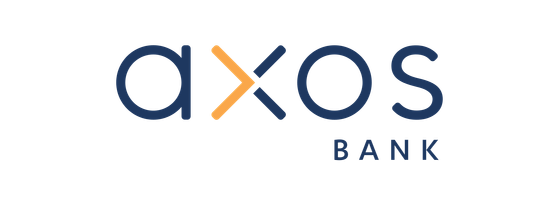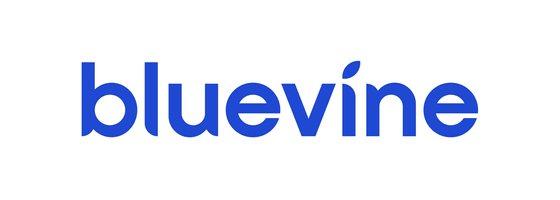- No collateral required
- Online lenders can offer fast funding
- Flexible repayment terms
Best Unsecured Business Loans in February 2025

Our evaluations and opinions are not influenced by our advertising relationships, but we may earn a commission from our partners’ links. This content is created by TIME Stamped, under TIME’s direction and produced in accordance with TIME’s editorial guidelines and overseen by TIME’s editorial staff. Learn more about it.
Unsecured business loans allow businesses to borrow funds without the requirement of collateral, such as real estate or equipment. These loans are typically approved based on the credit history of the business and owner. Due to the increased risk the lender assumes, they generally come with higher interest rates than secured loans.
Choosing the right business loan can be challenging, as you have to understand various loan terms and conditions, as well as the associated costs and fees. Here’s a closer look at the best unsecured business loans to help you navigate your borrowing decision.
Axos supports Small Business Associations (SBA) loans for small businesses, which generally require collateral to secure the loan. For unsecured loans, you may want to take out a personal loan to fund your new business venture. While they incur a personal guarantee, you can borrow up to $50,000 with terms of three to six years. You’ll need a good credit score of 700 or above for approval.
If you complete the application and answer all follow-up questions quickly, it’s a fast lender. You’ll get funds as soon as the next business day after signing your loan offer.
Lending Club offers unsecured business loans through a partnership with the Accion Opportunity Fund. To qualify for a loan of up to 500,000, you’ll need at least 50,000 in annual sales and at least 12 months of business history and be based in the U.S.
There’s no prepayment penalty, so you can get out of debt faster if you can afford more than the monthly fixed payment. Lending Club also offers SBA loans for 400,000 to 5 million, though collateral may be required.
LendingPoint allows healthcare and construction businesses to offer loans to customers. With LendingPoint integrated, medical offices and contractors can get paid quickly, while customers can pay over time.
The financing company also offers marketplace operators an option to offer financing to sellers, so they can purchase inventory to grow their business on your platform. And while it doesn’t offer direct business loans, you can use LendingPoint for a personal loan.
If you’re a business owner and want a personal loan for non-business needs, OneMain Financial could be a good choice. Loans are not to be used for business purposes. However, you can take out a loan for personal use when your money is tied up in the business.
OneMain features loans for up to $20,000 with repayment terms of two to five years. Beware that the annual percentage rate (APR) can be quite high, well above 30%. You can apply online or at one of 1,400 branch locations. If you don’t like the unsecured loan offer, secured loans are also available.
Upstart no longer offers unsecured business loans to new applicants, but it doesn’t prevent you from using a personal loan for business purposes. Loans are available for 1,000 to 50,000 with terms of three or five years. While borrowers with strong credit profiles can receive extremely competitive rates, borrowers with less-than-stellar credit may pay well over a 30% APR.
According to Upstart, the initial loan application takes about five minutes, and most borrowers receive funds one business day after signing loan documents. There’s no prepayment penalty if you pay off your loan early, which can lead to significant interest savings compared with regularly making the scheduled monthly payments.
OnDeck offers fixed-term loans and lines of credit for small businesses. It’s focused exclusively on business lending, and the application process takes about 10 minutes. Credit lines are available up to 100,000, and term loans are available up to 250,000.
You’ll need at least one year in business and $100,000 in annual revenue to qualify. However, beware of potentially high interest rates. OnDeck doesn’t share its full range of rates, but the average rate is 55.8% APR for term loans and 56% for lines of credit, as of March 2024. You may get a very expensive loan offer depending on your approved terms.
Bluevine is a business bank offering checking accounts and lines of credit. You can borrow up to $250,000 and get approved in as little as five minutes. You can draw on your loan using the Bluevine website whenever you need funds. There’s no fee to open, maintain, or prepay a Bluevine line of credit.
To qualify for a Bluevine loan, you must have at least two years of business history, a 625 credit score, and $40,000 in monthly revenue. You must connect Bluevine with your business bank account or submit at least three months of bank statements. If your business qualifies, rates can be very competitive.
| Provider | Best for | Maximum loan amount | Terms | APR* | BBB rating |
|---|---|---|---|---|---|
Axos | Personal loan for your business | $50,000 | Three to six years | 11.79% to 20.84% | A+ |
Lending Club | Large business loans | $500,000 | One to five years | N/A | A+ |
LendingPoint | Businesses offering loans to customers | Varies | Varies | Varies | A+ |
OneMain Financial | Personal loans for business owners with fair credit | $20,000 | Two to five years | 18.00% to 35.99% | B+ |
Upstart | Personal loan for your business with fast funding | $50,000 | Three years or five years | 6.4% to 35.99% | A+ |
OnDeck | Best unsecured loans just for businesses | $250,000 | Up to two years | 55.8% average | A+ |
Bluevine | Best for business lines of credit | $250,000 | Six months or one year | Unenumerated weekly simple interest rate | A+ |
*Interest rates as of Dec. 19, 2023
To evaluate the loans included in this list, we reviewed lenders for loan offerings, interest rates, fees, and repayment terms. This approach ensured a comprehensive understanding of each lender's flexibility, costs, and loan structures, enabling us to identify the most favorable options for small business owners.
To find the right unsecured business loan, start by assessing your business' financial needs and credit health. Consider the loan amount you require and how it aligns with your business's cash flow and repayment abilities. Examine your personal credit score, as it can impact loan approval and terms.
Next, compare the interest rates, fees, and terms various lenders offer. Look for competitive interest rates and be vigilant about hidden fees that can increase the overall cost. Balancing these factors will help you choose an unsecured business loan that best fits your business's financial situation.
Several unsecured business loan alternatives can provide different financing solutions suitable for various business needs. Here are five options.
An unsecured business loan is a type of loan given to businesses without requiring collateral, such as property or equipment. Unsecured loans rely on the borrower's creditworthiness and business performance. It's often chosen by businesses that prefer not to risk their assets and don’t mind paying a higher interest rate.
Unsecured business loans provide funds based on the borrower's credit score and the business’s financial stability. The lender typically evaluates the business' revenue, financial statements, and credit history to determine loan eligibility and terms. Repayment includes the principal amount plus interest, typically through fixed monthly payments.
The loans we reviewed had APRs starting at around 6% to 7%. However, several lenders featured rates around 35%, and a few loans were over 50%. Shopping around for the best rates and terms can lead to significant savings.
Unsecured business loans come in several forms, including fixed-term loans, where borrowers receive a lump sum to be repaid over a set period. Lines of credit offer flexible access to funds up to a certain limit. Invoice loans allow you to borrow using expected customer payments as collateral.
To get an unsecured business loan, start by assessing your personal and business credit and preparing your financial statements. Research and compare different lenders, focusing on their loan terms and eligibility criteria. Submit a comprehensive application, including detailed business plans and financial records, to improve your chances of approval. Shopping around can help you find the lowest rate for your particular situation.
To effectively manage an unsecured business loan, prioritize timely payments to avoid late fees and credit score impacts. Regularly review your business's financial situation and adjust your budget to ensure you can afford the loan payments. If you find better rates or terms to reduce costs, consider refinancing down the road.
Unsecured business loans can be a reasonable way for businesses to fund various business needs, from equipment to expansion to inventory to covering the bills during a cash crunch. If you’re confident in your ability to repay the loan and fully understand the costs, an unsecured business loan can be a good business decision.
You typically need a strong credit history, a solid business track record, and a stable income. Lenders will assess your business's financial health, credit score, and cash flow to determine your eligibility.
An unsecured business loan is a loan given to businesses without requiring any collateral, such as property or equipment. Approval and conditions are based primarily on the borrower's creditworthiness and the financial health of the business.
The interest rates for the unsecured business loans covered in this article vary widely, ranging from 6.4% to over 50%%. The online small-business platform NAV conducted research that found rates ranging from 4% to as much as 100%.
Such variances make an average a bit less than useful and, indeed, according to NAV, “There is no central source of data that collects and reports the average interest rates that business owners are paying on all types of small business loans and financing.”
In general, interest rates depend on factors such as the lender's policies, the borrower's credit score, and the financial stability of the business.
The amount you can get from an unsecured loan depends on your business's financial situation and creditworthiness. Unsecured business loans can range from a few thousand dollars to several hundred thousand dollars.
The information presented here is created by TIME Stamped and overseen by TIME editorial staff. To learn more, see our About Us page.










